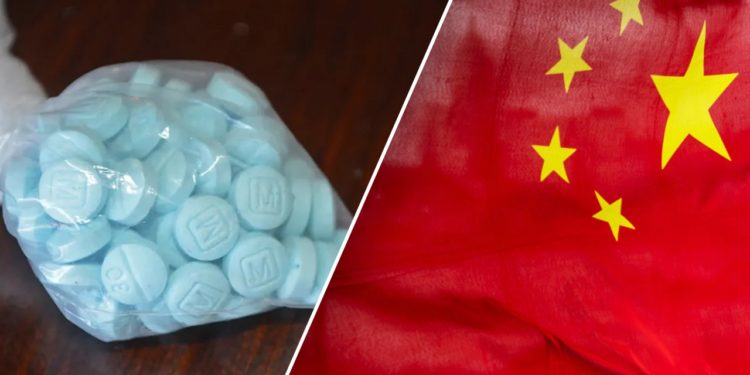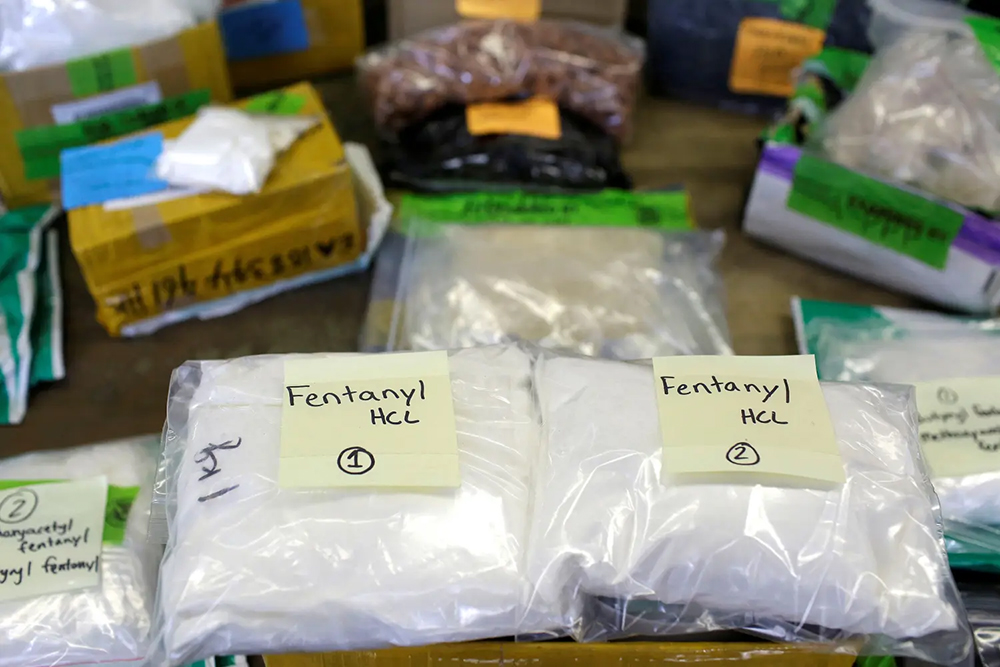A new report is sounding the alarm on China’s involvement in the U.S. fentanyl crisis, urging stronger action against the communist regime. This revelation comes amid increasing concerns about the country’s impact on America’s ongoing battle with opioid addiction. The Heritage Foundation has released a report titled “Holding China and Mexico Accountable for America’s Fentanyl Crisis,” which was obtained early by Fox News Digital.
Authored by Andrés Martínez-Fernández and Andrew J. Harding, the report draws attention to the staggering number of deaths linked to fentanyl—75,000 Americans in 2023 alone. The highly potent drug, often lethal in minuscule doses, has been a growing concern across the United States. The authors emphasize the gravity of this crisis, stating,
“At the heart of this crisis is an intricate global partnership bringing together America’s top geopolitical adversary and powerful transnational criminal organizations.”
Chinese and Mexican Nexus Behind Fentanyl Trafficking
Illicit fentanyl is typically manufactured in Mexico using Chinese chemical precursors. Mexican drug cartels then smuggle it across the U.S. border, often mixing it with other substances without users’ knowledge.
While Mexico’s role in the fentanyl crisis is widely recognized, the report argues that China’s involvement remains largely in the shadows. “Indeed, unknown to most Americans, the Chinese Communist Party (CCP) is actively funding, supporting, and pushing America’s most deadly drug threat in history,” the authors write.

They further highlight the danger, adding, “The combined forces of deadly Mexican drug cartels and hostile Chinese ambitions have delivered to the United States a destabilizing crisis and a death toll that each year eclipses the total of U.S. casualties from the Vietnam War.”
China’s Direct Involvement in Fentanyl Production
The report points to congressional findings that the CCP directly subsidizes the production and export of illicit fentanyl materials. A tax rebate program allegedly incentivizes the export of these precursors, contradicting China’s claims of helplessness in curbing illegal activities. “It may also be possible that China might not have a full understanding of the specific precursor shipment volumes because it does not allocate a sufficient number of inspectors over its pharmaceutical chemical manufacturing industries,” the report states.
The authors find that these chemicals are arriving in the United States through various means, including air cargo, postal facilities, and maritime routes. They also note an increased Chinese presence in fentanyl distribution networks in Canada.
U.S. Response and the Need for Tougher Measures
The Biden administration has taken steps to address the crisis, such as enhancing access to treatment and boosting resources at ports of entry. The Treasury Department has sanctioned numerous individuals and entities involved in fentanyl smuggling, while diplomatic efforts have pressured China into pledging stronger action against suppliers. However, the authors caution that these diplomatic successes “are likely to ring hollow,” given China’s history of using negotiations to extract concessions without making significant changes.
“Furthermore, China’s announcements ‘don’t carry substantial costs for [its] chemicals industry,’ meaning, as long as suppliers can evade rules—which has been documented for years, the production of fentanyl precursors will continue to prove profitable,” they explain.
“If past patterns are repeated, then the Biden Administration’s fentanyl diplomacy is unlikely to curtail this deadly scourge.”
Lack of Good-Faith Partners
The report also criticizes Mexico for its “complicity” with drug cartels, suggesting that the government has largely abandoned its efforts to tackle these criminal organizations. The authors argue that the U.S. strategy must acknowledge it “lacks good-faith partners in both the Chinese and Mexican governments.”

To counter this, they recommend that U.S. intelligence agencies publicly expose China’s involvement in fentanyl trafficking and impose harsher penalties on financial institutions aiding these illicit activities.
Reshaping the Pharmaceutical Supply Chain
One proposed solution is to facilitate the reshoring and nearshoring of pharmaceutical supply chains, reducing reliance on China. The report also calls for efforts to uncover Mexican involvement in the crisis.
The authors warn, “If the U.S. government continues to passively accept the fentanyl crisis as simply another illicit drug challenge and fails to prevent the CCP from facilitating this deadly trade, hundreds of thousands—if not millions—of Americans are at risk of losing their lives.”



